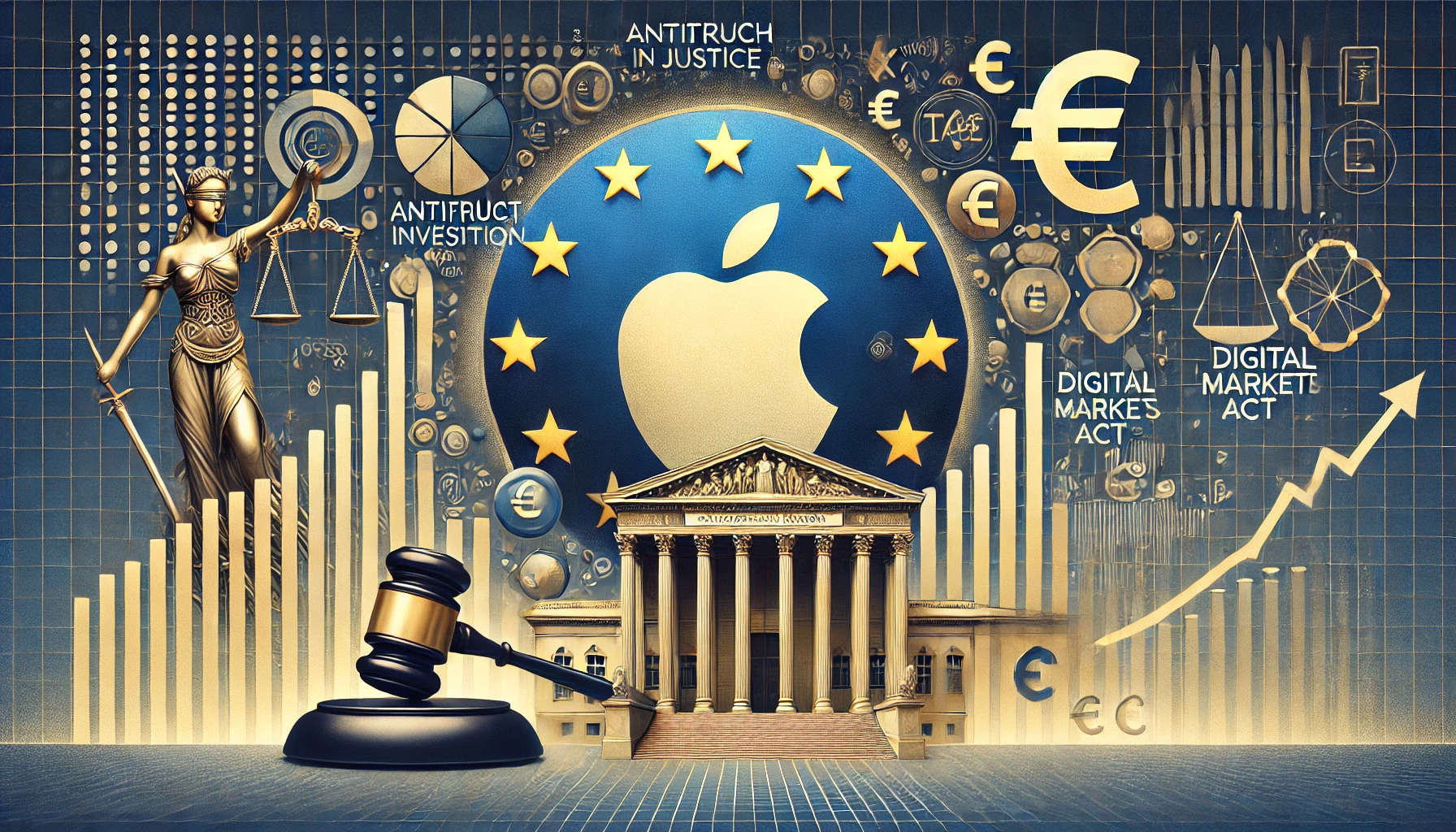Apple’s €13 Billion Tax Battle: What It Means for the Future of Big Tech in Europe
Apple has long been one of the world’s most successful and influential tech companies. But its business practices in Europe have been under intense scrutiny, with various legal battles, fines, and investigations targeting its operations. Central to this is Apple’s €13 billion tax case, a legal battle that has spanned several years and is emblematic of the larger regulatory pressure the company faces in Europe. In this article, we’ll explore the key details of Apple’s EU tax case, the €13 billion tax bill, ongoing Apple antitrust investigations in the EU, and how the Digital Markets Act is reshaping its business. We’ll also touch on Apple’s compliance with European regulations and its financial impact, examining why the EU is increasingly becoming a “cash sinkhole” for the tech giant.
Apple EU Tax Case: A Billion-Euro Battle
One of the most prominent issues facing Apple in Europe is its tax practices. The Apple EU tax case dates back to 2016 when the European Commission ruled that Ireland granted Apple “illegal state aid” in the form of favorable tax deals. As a result, Apple was ordered to pay a €13 billion tax bill, one of the largest tax penalties in history.
The €13 Billion Tax Bill Explained
The European Commission’s ruling argued that Apple benefited from a selective tax arrangement in Ireland that allowed it to pay significantly lower taxes than other companies. This arrangement, according to the Commission, violated EU rules on state aid, thus requiring Apple to repay €13 billion in back taxes. Both Apple and Ireland appealed the decision, leading to a drawn-out legal battle that has captured global attention(POLITICO)(Financial Times).
The Ongoing Appeal
In 2020, Apple won an appeal when the General Court of the European Union ruled in its favor, stating that the Commission did not sufficiently prove that Apple had gained a competitive advantage. However, the European Commission appealed the ruling, meaning the case has not yet concluded. As of 2024, the Apple EU tax case continues, with billions of euros at stake and the potential to reshape how multinational corporations operate in Europe(POLITICO).
Apple’s Antitrust Challenges in Europe
Apple’s regulatory woes in Europe extend beyond taxes. The company has also faced several antitrust investigations in the EU, primarily centered around its App Store policies and business practices. European regulators have raised concerns that Apple’s dominance in the app distribution market may be stifling competition, leading to multiple investigations.
App Store Practices Under Fire
One of the core issues in the Apple antitrust investigation in the EU is the company’s App Store fees. Apple charges developers up to 30% in commission for sales made through its platform, which many app developers argue is excessive and unfair. Critics have dubbed this the “Apple tax,” and several developers have called for regulators to intervene(Financial Times).
The European Commission has taken these concerns seriously, opening formal investigations into Apple’s practices. The Apple EU monopoly case is a key focus, with regulators examining whether the company’s control over app distribution violates EU competition laws(POLITICO).
Apple’s Response to Antitrust Scrutiny
In response to these investigations, Apple has made several concessions. It has reduced commission fees for smaller developers and implemented changes to its App Store policies. However, many argue that these adjustments are not enough, and the company remains under significant pressure to further alter its business model(POLITICO).
The Digital Markets Act and Its Impact on Apple
Another major regulatory hurdle Apple faces in Europe is the EU’s Digital Markets Act (DMA). Enacted in 2022, the DMA aims to promote fair competition in digital markets by curbing the power of “gatekeepers” like Apple. One of the most controversial aspects of the DMA is the requirement for platforms to allow side-loading — the installation of apps from third-party sources outside of official app stores.
The Side-Loading Debate
Apple has long resisted the idea of side-loading, arguing that it compromises the security and privacy of its devices. However, under the Digital Markets Act, the company is required to allow this practice in the European market. The Apple side-loading EU debate has become a central issue, with Apple stating that side-loading could make iPhones more vulnerable to malware and cyberattacks(Ahrefs).
While Apple is making efforts to comply with the DMA, the company has expressed its concerns about the new regulations, leading to ongoing tensions with EU regulators. For Apple, compliance with the DMA represents a significant challenge that could impact its app revenue model and market dominance in Europe.
Apple EU Compliance: Navigating Complex Regulations
As a multinational corporation operating across various jurisdictions, Apple must navigate a complex web of regulations, particularly in Europe. The Apple EU compliance efforts have ramped up in recent years as the company works to meet new regulatory requirements without compromising its business operations.
Fines and Financial Penalties
In addition to its tax and antitrust challenges, Apple has faced substantial fines in Europe for failing to comply with regulations. For example, in 2024, Apple was fined €1.8 billion over App Store rules. These fines, coupled with ongoing Apple EU fines related to other regulatory breaches, are taking a toll on the company’s financial performance in the region(POLITICO)(Financial Times).
Adjusting Business Practices
To avoid further penalties, Apple has made several adjustments to its business practices in Europe. These include changes to its payment systems, app store policies, and efforts to comply with the Digital Markets Act. Despite these efforts, the company remains under intense scrutiny, and many developers continue to call for more comprehensive reforms(Ahrefs).
Why the EU Is Becoming a Cash Sinkhole for Apple
With multiple legal battles, regulatory investigations, and compliance costs piling up, it’s no wonder that Europe is becoming a “cash sinkhole” for Apple. The company has invested billions in legal fees, tax repayments, and fines, all of which have eroded its profitability in the region.
Financial Impact of EU Regulations
Apple’s revenue from Europe accounted for nearly 25% of its total earnings in 2023, making it a critical market for the company. However, the growing regulatory burden, coupled with ongoing fines and legal battles, has made it increasingly difficult for Apple to maintain its financial performance in Europe(Ranktracker SEO Platform).
Future Challenges
Looking ahead, Apple is likely to face even more regulatory challenges in Europe. The Apple EU tax case and Apple EU monopoly case are ongoing, and new regulations, such as the Digital Markets Act, will continue to shape the company’s business practices. For Apple, the question remains: will these challenges become so overwhelming that the company reduces its presence in Europe, or will it find a way to adapt and thrive in this increasingly complex regulatory landscape?
Apple’s Future in Europe
Apple’s regulatory struggles in the EU, from the €13 billion tax bill to the Digital Markets Act, are reshaping the company’s operations in the region. As Apple’s EU compliance efforts intensify, the financial impact of fines, investigations, and compliance costs continues to grow. For now, Europe remains a critical market for Apple, but its ongoing legal battles and the ever-evolving regulatory environment make it a challenging one.
For more insights into global regulations and tech companies, visit Regent Studies. To learn more about Apple’s regulatory challenges, check out this article on Apple’s antitrust battles in the EU.
As Apple continues to navigate these challenges, the company’s ability to adapt to European regulations will define its long-term success in the region.




